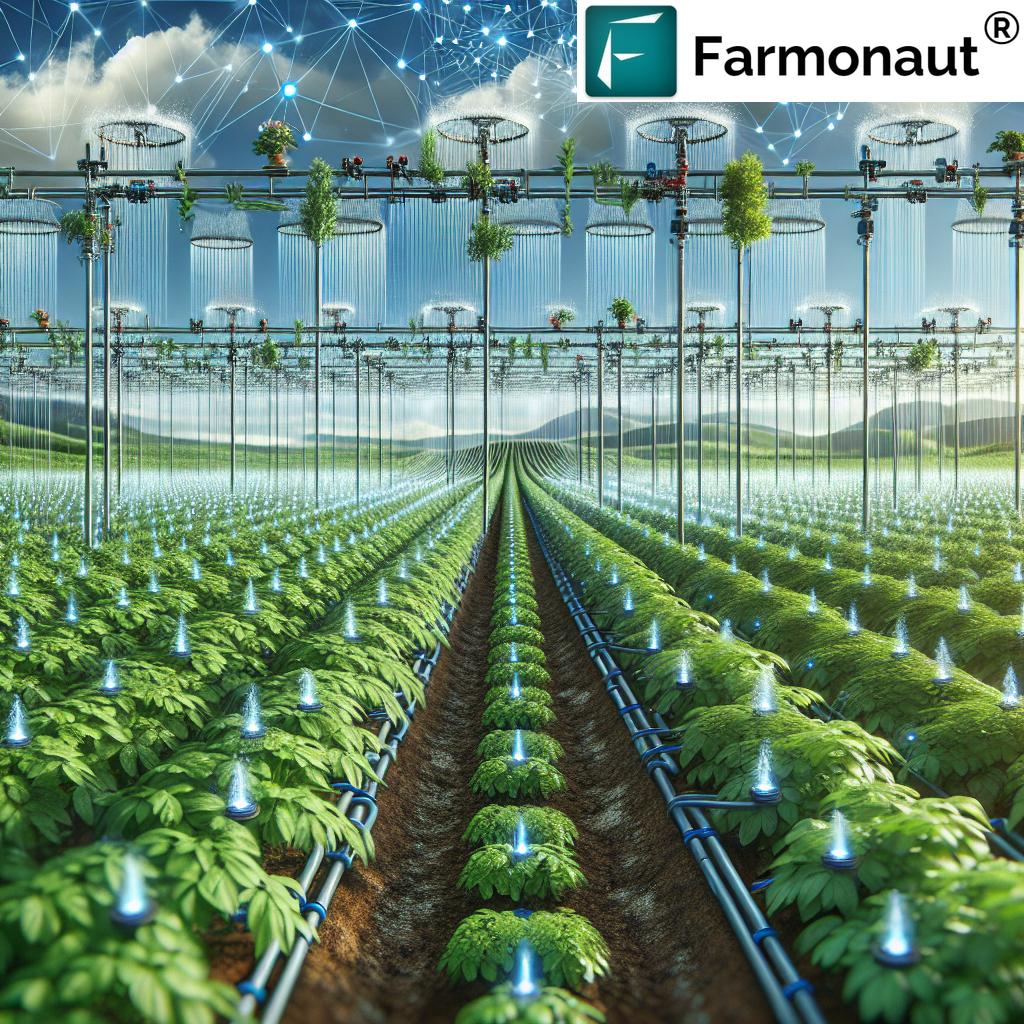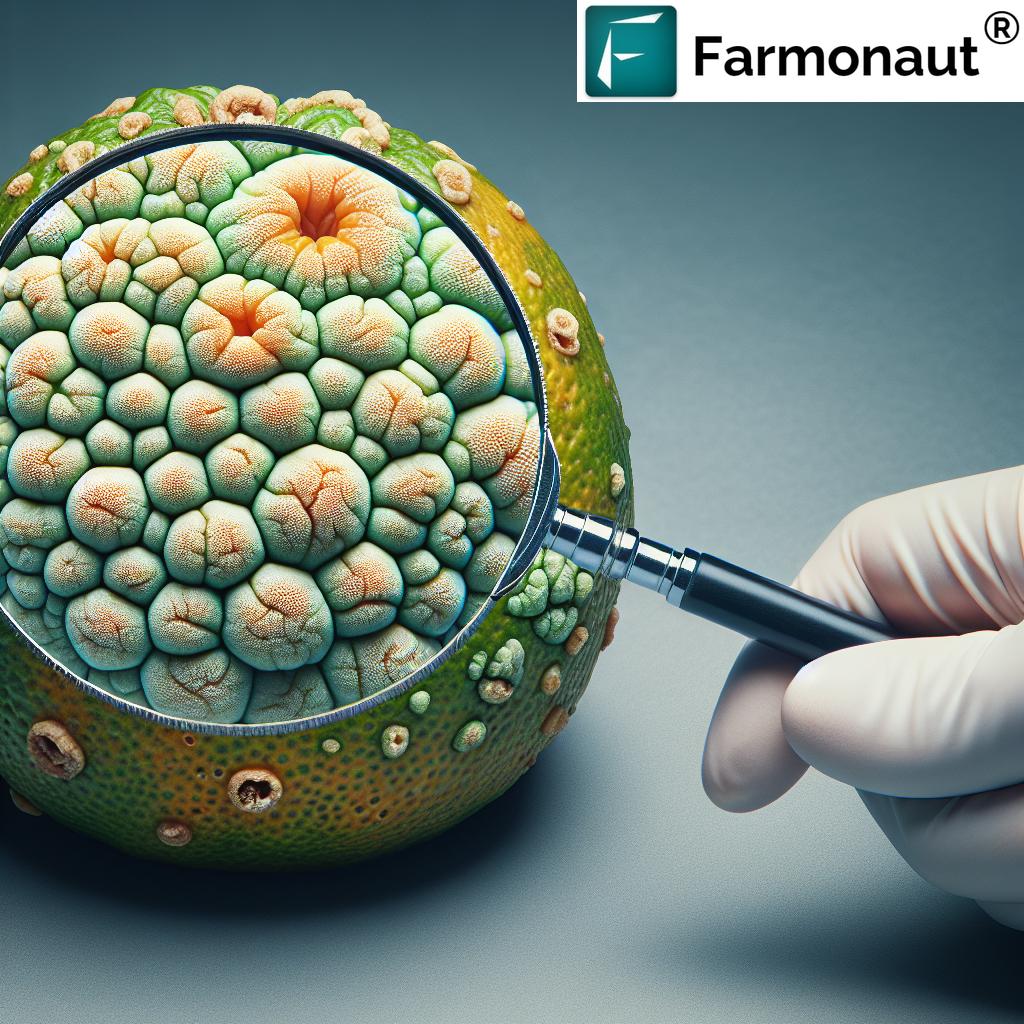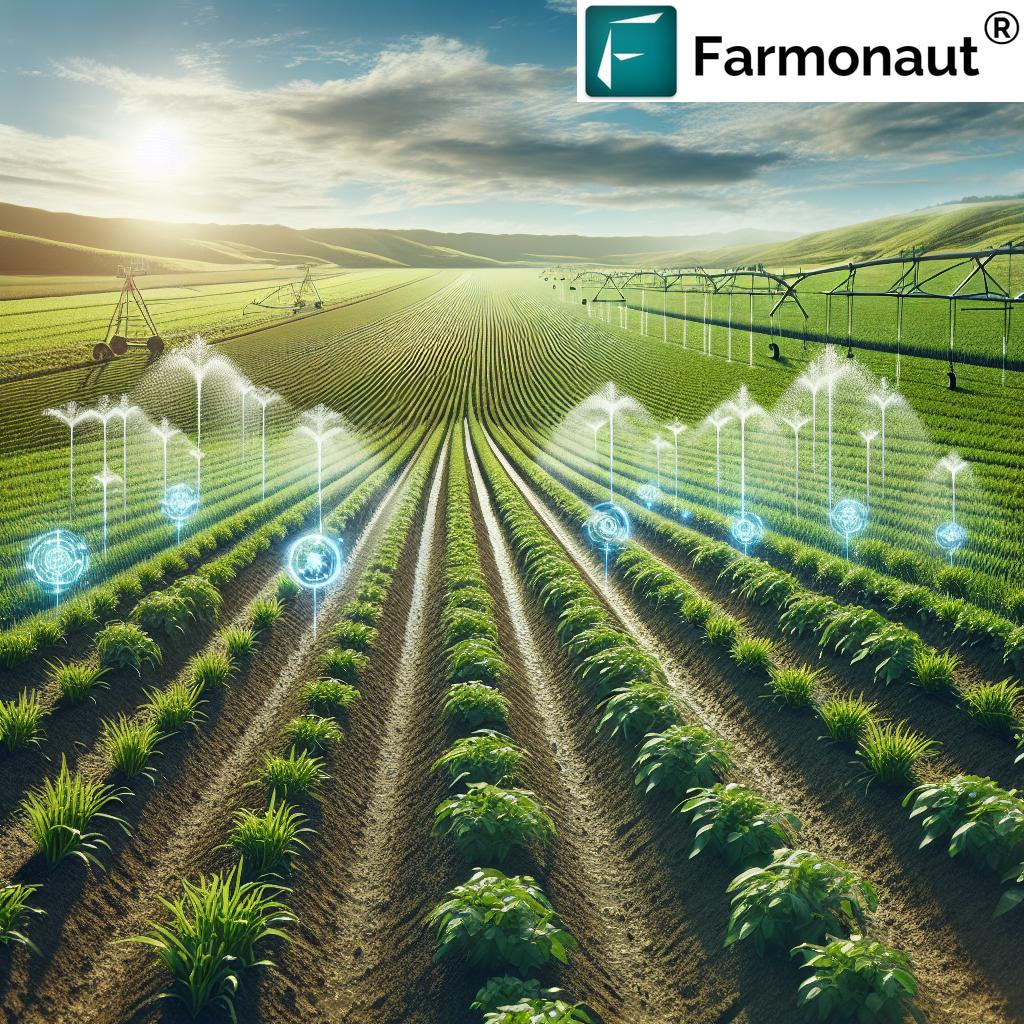Accurate Soil pH Tester: Best Soil Tester Meter for 6.0 pH
Meta Description: Accurate soil pH tester use is essential for sustainable agriculture. Learn why using the best soil tester meter for 6.0 pH soil is a cornerstone for optimal yield and environmental health in 2025.
“Soil at pH 6.0 increases nutrient absorption by up to 30% compared to less accurately measured soils.”
Accurate Soil pH Testing: A Cornerstone for Sustainable Agriculture in 2025
In the rapidly changing landscape of modern agriculture, achieving optimal yield and sustaining soil health are paramount goals—especially as global food demand escalates and sustainability becomes critical. While there are many factors influencing soil fertility, soil pH stands out as one of the most vital yet often overlooked factors.
Maintaining soil pH values around 6.0 is ideal for many staple crops, maximizing both nutrient availability and crop productivity. In 2025, precision tools such as the best soil tester meter and an accurate soil pH tester have become indispensable for farmers and agronomists focused on sustainable farm management.
Why Focus on Soil pH?
- Accurate pH testing determines nutrient availability for crops.
- Optimal 6.0 pH soil prevents issues like organic matter decomposition delays, nutrient deficiencies, and toxicities.
- Precision agriculture depends on reliable onsite measurements, enabling real-time decisions for sustainable practices.
Understanding Soil pH, Acidity, and Its Importance
Soil pH is a measure on a 0 to 14 scale indicating the acidity (below 7), neutrality (7), or alkalinity (above 7) of your field’s soil. This simple figure influences nutrient uptake, impacts microbial activity, and determines how well crops can thrive in given conditions.
- Below 7: Acidic Soil
- Exactly 7: Neutral Soil
- Above 7: Alkaline Soil
A 6.0 pH soil is considered mildly acidic. This is the optimal pH range for many nutritious staple crops including maize, wheat, and certain legumes. In these ideal pH conditions, nutrient availability—especially key elements like nitrogen, phosphorus, and potassium—is maximized, ensuring productive yields and robust crop health.
How Soil pH Affects Plant Growth
Soil pH determines how plants interact with essential nutrients and trace minerals. For example:
- At or near 6.0: Most nutrients are available and soluble, allowing crops like corn and wheat to absorb them efficiently.
- Below 5.5: Critical nutrients may become locked up or toxic, resulting in lower yields and higher susceptibility to plant diseases.
- Above 7: Soil becomes too alkaline for many staple crops, reducing availability of phosphorus, iron, manganese, and zinc.
The Science of pH, Acidity, and Alkalinity
The ability to precisely measure soil pH—especially when aiming for an ideal value like 6.0—is essential for food security and environmental health in 2025. A best soil tester meter or accurate soil pH tester quickly provides digital readings, allowing farmers to optimize crop selection, soil amendments, and more.
Learn how modern agriculture leverages soil health and pH accuracy for climate-smart, sustainable food production.
The Role of Accurate Soil pH Testers in Modern Farming
Traditional soil pH testing methods often involve sending soil samples to laboratories—a costly and time-consuming process. In the era of precision agriculture, accurate soil pH testers and the best soil tester meters revolutionize how fast, reliable onsite testing is achieved.
- Advanced portable meters provide quick, digital pH readings directly in the field.
- Accurate sensors and calibration features reduce measurement errors caused by moisture, temperature, and user handling.
- Routine field monitoring ensures real-time nutrient management decisions and supports optimal soil health.
A meter with multi-parameter features elevates sustainable farming, helping manage moisture, electrical conductivity, and temperature—all key factors when interpreting soil’s chemical composition and crop requirements.
Why Portable pH Testers Are Indispensable
- Enabling quick, informed decisions regarding amendments such as the application of lime or sulfur to adjust pH.
- Facilitating crop selection that matches the current soil pH conditions for maximum productivity.
- Reducing fertilizer costs and environmental impact by targeting real needs rather than blanket applications.
“Over 80% of crops achieve optimal growth when soil pH is maintained precisely between 5.5 and 6.5.”
Watch Related Videos: The Importance of Soil in Sustainable Farming
Discover how soil pH and accurate soil testers support resilient, sustainable farming in the face of global change.
Key Features of the Best Soil Tester Meter for 6.0 pH Soil (2025 Edition)
The best soil tester meter for 6.0 pH soil is distinguished by its precision, reliability, and advanced sensor technology. Key features to prioritize when choosing a soil tester in 2025 include:
- High Sensor Accuracy: Capable of detecting pH changes of 0.01 units, ensuring even small shifts around the critical 6.0 mark are visible.
- Rapid Digital Readout: Obtain results instantly onsite—no lab delays.
- Robust Environmental Compensation: Adjusts for soil moisture, temperature, and local conditions, making readings dependable across seasons and fields.
- Multi-parameter Sensing: Simultaneous measurement of soil moisture, temperature, and EC (Electrical Conductivity) for holistic soil management.
- Data Logging & Smart Connectivity: Save, upload, and analyze data via Bluetooth or smartphone integration—facilitating large-scale farm management and historical trend analysis.
- Durability and Battery Life: Sustains extended use under field conditions, critical for professional and smallholder farmers alike.
Recommended Use Case: Precision pH Management
Using an accurate soil pH tester, growers can sample multiple locations in their field and map pH variations. This data-driven approach supports precise application of lime in acidic zones—saving money and protecting the environment by applying amendments only where needed.
See how AI-driven satellite soil moisture and pH monitoring optimize water and nutrient management for sustainable crop production.
Soil pH Value Impact on Crop Yield and Health
This data highlights why monitoring and maintaining soil around 6.0 pH with an accurate soil pH tester is crucial for crop health, environmental safety, and sustainable agricultural practices.
How satellite-based monitoring complements soil pH testing for precise, sustainable farm management.
Implementing Routine pH Testing for Soil Management
To achieve sustainable agriculture goals, routine pH testing with an accurate soil pH tester is indispensable. Here’s how leading farms integrate it into their management practices:
- Sample widely and consistently: Take representative samples across fields multiple times a year—especially following harvest or fertilizer application.
- Map pH patterns: Identify problem zones (acidic or alkaline patches), allowing for targeted amendments like lime or sulfur.
- Track progress: Using digital data integration, monitor how amendments shift pH over time for improved nutrient management and crop health.
- Link to crop selection: In highly variable soils, alter planting schemes—choose acid-tolerant or specific cultivars that optimize yield in given pH ranges.
- Document for traceability and compliance: Log results for traceable, sustainable production, boosting both food safety and access to carbon footprint certifications and traceability documentation.
Tracking soil health not only boosts productivity, but also helps reduce unnecessary fertilizer use and environmental impact—critical to sustainability in 2025 and beyond.
For large-scale farm management or agronomy services, Farmonaut’s satellite-powered Agro-Admin App offers integrated solutions for monitoring real-time soil and crop health, supporting better decisions across entire farm portfolios.
Use the Farmonaut Web App to monitor large fields, optimize interventions, and ensure pH balances for top yields.
Discover the connection between soil pH, water management, and crop success—empowered by precision technology.
Explore Cutting-Edge Soil Testing Technology
Watch how advanced soil science and satellite tools combine to unlock soil secrets and drive nutrient management, carbon farming, and climate-smart practices.
Our Satellite Insights for Smarter pH Management
At Farmonaut, we are dedicated to making data-driven agriculture accessible and affordable for all. Our suite of satellite-based monitoring tools complements ground-level pH tester readings, providing a holistic view of soil properties, vegetation health, and environmental impact.
- Satellite-Based Crop Health: Our satellite insights app delivers real-time NDVI maps, soil condition tracking, and predictive weather analytics.
- AI Advisory System: Using multispectral data, Jeevn AI suggests tailored management practices for pH optimization, water use, and yield prediction.
- Blockchain Traceability: Secure, tamper-proof records of soil health, amendments, and inputs—building trust for farmers, buyers, and regulators. Discover more at our traceability page.
- Environmental Impact: Real-time tracking of carbon footprints and sustainability metrics aligns your farm with climate certifications.
By combining on-the-ground accurate soil pH tester data with satellite-driven insights, farms can monitor and respond to soil health fluctuations—mitigating risks, optimizing productivity, and future-proofing yields.
Try Farmonaut’s tools for yourself, or integrate our satellite-verified soil and crop data API directly into your digital farming platforms for seamless workflow automation. More about our developer options can be found in our API Developer Docs.
How Soil pH Testing Supports Environmental Sustainability
Precise soil pH testing is about more than maximizing crop yield—it is a cornerstone for sustainable farming practices. Here’s how:
- Reducing Chemical Overuse: By targeting nutrient amendments only where the soil requires adjustment, we minimize runoff, erosion, and groundwater pollution.
- Improving Soil Biology: Soils at optimal pH (near 6.0) support healthy populations of beneficial microorganisms, boosting organic matter decomposition and plant resilience.
- Carbon Sequestration: Soils managed according to precise pH readings are better at growing cover crops and building soil organic carbon—locking away CO₂ for climate protection.
- Complying with Global Sustainability Goals: Sustainable pH management aligns with the United Nations Sustainable Development Goals for food security, reduced inputs, and responsible resource use.
Farmonaut’s satellite monitoring delivers the data backbone for sustainable soil management and environmental reporting.
Future Advancements in Soil pH Testing Technology
Looking at 2025 and beyond, the future of accurate soil pH tester technology will be shaped by automation, remote sensing, and AI integration. Some innovations to watch include:
- Non-invasive Sensors: Emerging spectrometry and nanotechnology-enabled meters measure pH instantly, with no need for soil extraction, enabling continuous field mapping.
- Wireless Integration: Cloud-connected meters will auto-upload readings to centralized digital farm diaries, supporting team-based management and rapid agronomic adjustments.
- AI-Driven Analysis: Cross-referencing soil pH data with satellite images, weather trends, and yield predictions for highly personalized, dynamic recommendations.
- Blockchain Traceability: Secure, tamper-proof registries for every pH reading and amendment—building transparency for food buyers and regulators.
These trends indicate a future where every soil decision is informed by precise onsite readings and global satellite insights, setting the stage for efficient, resilient, and sustainable agriculture.
Farmonaut App & Subscription Benefits
Maximize your use of soil testers and pH meters with Farmonaut’s exclusive suite of technology solutions:
- Large-Scale Management: The Farmonaut Agro-Admin App covers everything from farm segmentation to multi-user analytics, making pH correction programs seamless.
- Environmental Monitoring: Instantly calculate your farm carbon footprint and monitor its improvement with precise soil management.
- Traceability Documentation: Our traceability solution helps provide buyers and certifiers assurance about responsible pH and soil practice records.
- Crop Loan and Insurance: For financial aid, banks value objective data-driven soil/field conditions—boosting trust and access.
- Fleet Management: For businesses running multiple soil testers and sensors, Fleet management features optimize the whereabouts and productivity of your monitoring assets.
Frequently Asked Questions (FAQ)
What is the best soil pH range for most crops?
Most crops thrive between pH 6.0 and 7.5; 6.0–6.5 is optimal for food crops like maize, wheat, and legumes due to maximum nutrient availability.
Why is an accurate soil pH tester essential in modern agriculture?
An accurate soil pH tester helps farmers make informed decisions about amendments and crop selection, supports sustainable nutrient management, and prevents unnecessary input costs and environmental harm.
Do pH meters measure other soil properties?
Many modern meters also test for moisture, temperature, and electrical conductivity, allowing for comprehensive soil health management in a single device.
How often should soil pH be tested?
Ideally, at least twice per year (post-harvest and pre-planting). However, more frequent checks are needed when experimenting with amendments or in changing climate/rainfall conditions.
Why is 6.0 pH often called the ‘sweet spot’ for soil?
At 6.0 pH soil, most macro and micronutrients are available and non-toxic, supporting maximum yields and resilient plant health while minimizing fertilizer waste.
Conclusion: Accurate Soil pH Testers Empower Sustainable Farming in 2025
In summary, accurate soil pH testing and the use of the best soil tester meters are the backbone of sustainable agriculture moving forward. By understanding how soil pH affects nutrient availability, yield, and environmental quality, and incorporating routine pH monitoring with today’s precise meters—
farmers, agronomists, and land managers can optimize productivity, reduce risks, and ensure healthy, resilient fields.
The cornerstone to sustainable, profitable farming in 2025 rests on maintaining soil pH at optimal values like 6.0. When coupled with state-of-the-art digital and satellite solutions offered by Farmonaut, soil testing transforms from a routine task to a critical tool for achieving global food security and environmental balance.
Optimize your yields. Secure the future. Embrace accurate soil pH management—today.














